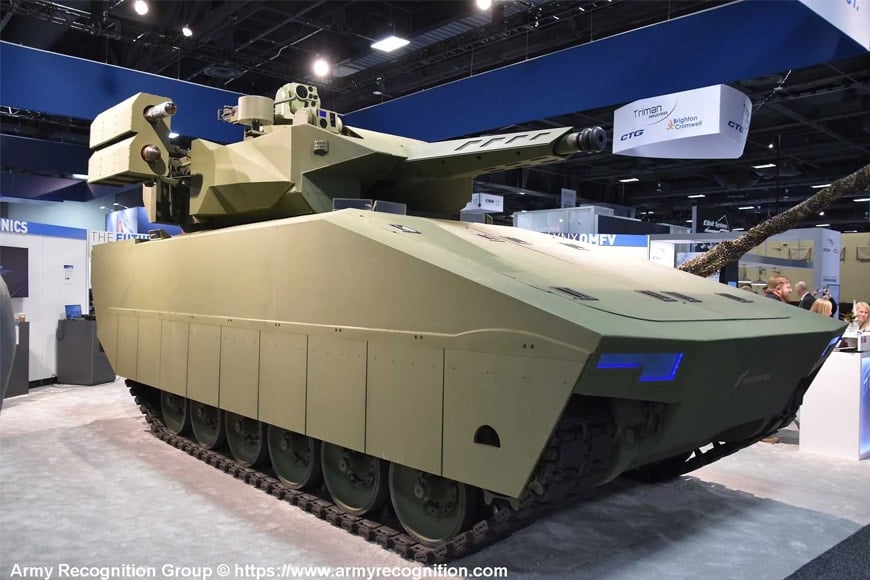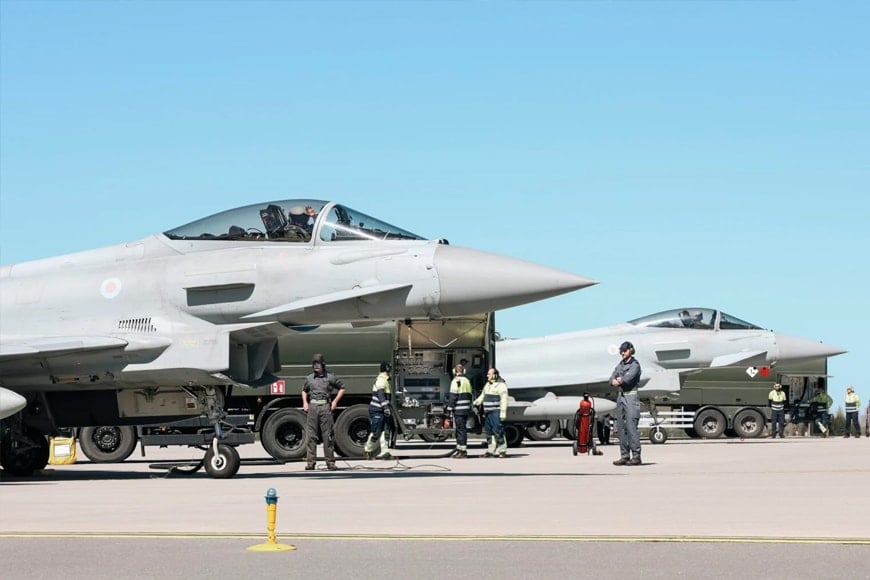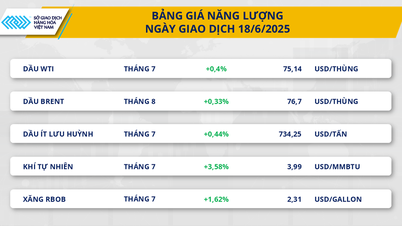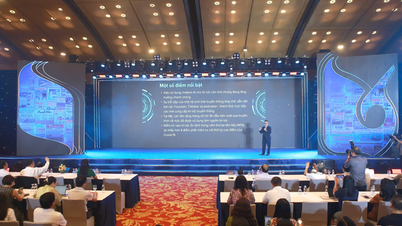* US plans to produce XM30 infantry fighting vehicle by the end of 2027
The US Army's XM30 mechanized infantry fighting vehicle program is expected to complete a critical design review and move into the development phase, with small-scale initial production planned for late 2027, according to a report by the US Government Accountability Office (GAO).
 |
Germany's Rheinmetall showcased the XM30 model, based on the Lynx KF41 infantry fighting vehicle platform, at the AUSA exhibition in October 2022. Photo: Army Recognition |
The XM30 is expected to be a next-generation solution to replace the aging Bradley infantry fighting vehicle. This vehicle is developed to provide superior firepower, superior mobility and modern protection features.
The planned XM30 infantry fighting vehicle will be equipped with advanced weapons systems, including a 50mm automatic cannon, which is superior to the Bradley's 25mm cannon in both range and destructive power. The vehicle will also be equipped with new generation anti-tank missiles and a digital fire control system.
In terms of mobility, the XM30 is being developed with a hybrid-electric propulsion system to reduce acoustic and thermal signatures, improve fuel efficiency, and increase maneuverability in difficult terrain. The XM30's suspension and traction systems are being designed to operate effectively in a variety of environments, from urban battlefields to difficult off-road areas.
Protection is a core element of the XM30 design. The vehicle will incorporate modular armor systems to adapt to different threat levels and mission types. Active protection systems, which can be Trophy or StrikeShield, provide protection against small arms fire and rockets. In addition, the XM30 will be equipped with comprehensive protection against chemical, biological, radiological, nuclear (CBRN) threats, counter-electronic warfare, and enhanced survivability in high-intensity conflicts.
* UK deploys fighter jets to Middle East
Britain is sending additional military forces, including fighter jets, to the Middle East to deal with growing instability in the region, Defence Blog reported.
Speaking to reporters on a flight to the G7 summit in Canada, British Prime Minister Keir Starmer said Britain was deploying military assets to the region, including aircraft , to provide contingency support in the region.
 |
Britain deploys fighter jets to the Middle East. Photo: Royal Air Force |
The UK currently maintains a military presence in the Middle East through ongoing operations in Iraq and Syria, where the Royal Air Force (RAF) is tasked with counter-terrorism and regional security.
The preparations were put in place after intelligence and operational assessments indicated a risk of escalation, a spokesman for the British Prime Minister said. The reinforcements include additional fighter jets and refuelling vehicles.
The Ministry of Defence has not released further details on the number of aircraft involved or the specific locations of the deployment, but the move reflects a broader UK effort to maintain operational readiness in the event of conflict or rapid intervention.
* Indonesia increases purchase of CAESAR self-propelled artillery
Indonesia has recently signed a new Letter of Intent (LOI) to purchase additional CAESAR self-propelled artillery systems and 155mm ammunition. This agreement not only reflects Indonesia’s strategy to modernize its armed forces but also paves the way for industrial cooperation between French defense contractor KNDS and the Indonesian Defense Technology and Industry Agency (DTIB).
With 56 CAESAR systems currently in service with the Indonesian Army (TNI AD), Indonesia currently ranks third in the world in terms of quantity and is the country with the most CAESAR self-propelled artillery systems in Asia.
 |
CAESAR self-propelled artillery of the Indonesian Army. Photo: Military Leak |
Indonesia initially purchased 37 CAESAR artillery systems in 2012 at a cost of $240 million, with the first two systems delivered in mid-September of the same year.
In February 2017, Indonesia ordered 18 more systems to equip three battalions of its army. The acquisition of CAESAR self-propelled artillery will enhance Indonesia’s long-range firepower, especially in dealing with security challenges in its vast archipelago. The decision to acquire additional CAESAR systems reflects Indonesia’s recognition of the need to enhance its artillery capabilities in the face of changing regional threats.
CAESAR is a self-propelled artillery system developed by GIAT Industries, now part of the French KNDS group. The system is known for its versatility, accuracy and mobility. Mounted on a 6×6 or 8×8 truck chassis, CAESAR is equipped with advanced targeting technology, including an inertial navigation system and ballistic computer, allowing it to engage targets more than 40km away with NATO standard ammunition. When using extended range or rocket-assisted ammunition, the CAESAR's firing range can be extended to 55km.
QUYNH OANH (synthesis)
* Today's World Military column on the People's Army Electronic Newspaper sends readers the latest information on world military security and defense activities in the past 24 hours.
Source: https://baodaknong.vn/quan-su-the-gioi-hom-nay-16-6-indonesia-tang-cuong-mua-phao-tu-hanh-caesar-255670.html






































































































Comment (0)